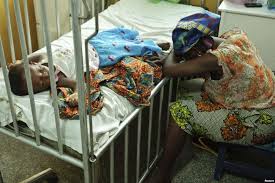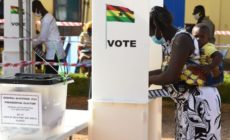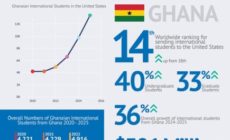109 children down with diabetes in Ghana
- Posted on
- Comment
 DR EMMANUEL Ameyaw, the Paediatric Endocrinologist at the Department of Child Health of the Komfo Anokye Teaching Hospital (KATH) in Kumasi, has disclosed that about 109 Ghanaian children are currently seeking medication for diabetes at the various hospitals in the country.
DR EMMANUEL Ameyaw, the Paediatric Endocrinologist at the Department of Child Health of the Komfo Anokye Teaching Hospital (KATH) in Kumasi, has disclosed that about 109 Ghanaian children are currently seeking medication for diabetes at the various hospitals in the country.
At the KATH child clinic, the medical officer said, 47 children with the disease were being treated, with 26 patients on admission at the Korle-Bu Teaching Hospital in Accra.
Other clinics in some communities which had recorded cases of children with diabetes included Sekondi, 25, Techiman, two, Tema, five, Kintampo, three, and Offinso, one.
Dr Ameyaw, who spoke to the paper in a recent interview, however, could not give further details on the disease in children in the various parts of the country insisting that the data was scattered.
“In fact, when you come to Ghana, the problem is that we do not have data on children having diabetes. The data is scattered. It is not organised so we are trying to see if along the line we can organise it,” he assured.
He pledged KATH’s preparedness to give children with diabetes a supervised care at its Paediatric, Diabetes and Endoclem Clinic where they “can let them play, go to school and then follow them to do what they can do for them to grow and become responsible adults.”
TREATMENT
In the opinion of the Paediatric Endocrinologist, sufficient insulin is important for everybody particularly children, explaining that people who lacked insulin may develop complications which could result in death.
Examples of the complications associated with the lack of insulin included blindness, stroke, loss of sensation when hot or cold object is touched, and development of difficult-to-heal ulcers or sores.
He advised hospitals to acquire glucometers and strips and encourage all patients including children to have their glucose levels checked for referrals and effective treatment.
“At some stages, diabetes can look like pneumonia, cerebral malaria or meningitis so we expect that every child with acute disease on admission in hospital should have his blood sugar measured,” he advised.
He urged clinics to refer any child with diabetes to the appropriate hospitals for treatment.

Dr. Emmanuel Ameyaw (right) being interviewed by James Quansah
GENERAL ADVICE
Dr Ameyaw implored parents and guardians to always look out for the symptoms of diabetes which might include frequent drinking of water, frequent passing of urine and irregular weight loss in spite of adequate eating.
He reminded Ghanaians that a child suffering from diabetes could develop ulcer or sore that would take a longer period to heal. This condition could affect the ovulation in women and sperm production in men.
“All these can be avoided when we identify the patients and give them a supervised care. When we identify them, we will give them insulin until their situations normalise,” he said.
The medical officer warned Ghanaians to desist from consuming much sugar as it puts some pressure on the pancreas.
FROM James Quansah, Kumasi










 (Selorm) |
(Selorm) |  (Nana Kwesi)
(Nana Kwesi)